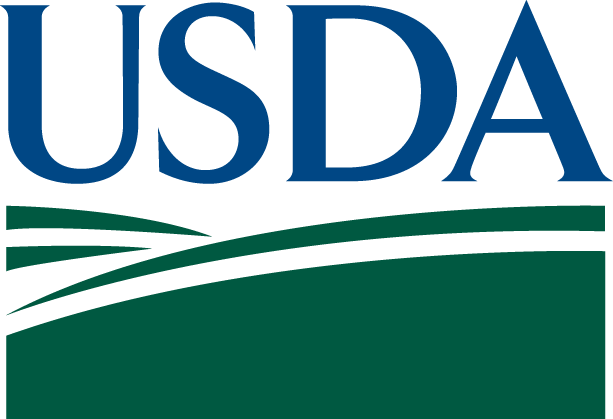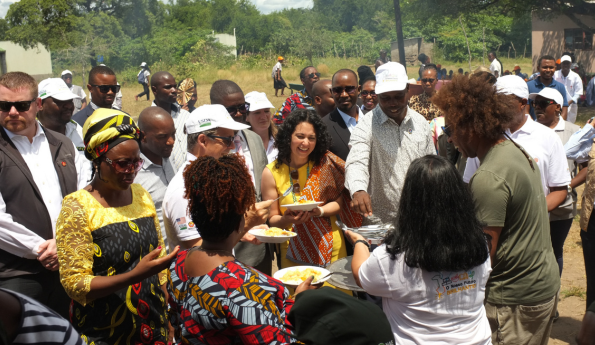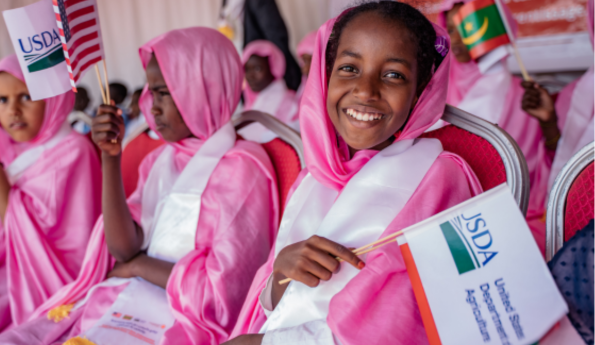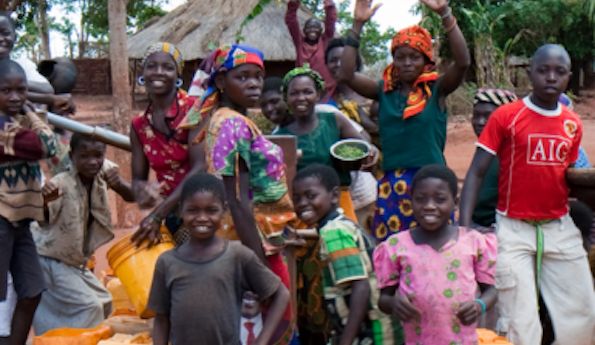McGovern-Dole International Food for Education and Child Nutrition Program
Food insecurity remains a widespread issue in Mozambique
Located in southeastern Africa, Mozambique is a low-income, food-deficit country with a largely rural population of 31 million. In 2015, the country reached its Millennium Development Goal of halving the number of hungry people. Despite this impressive achievement, significant challenges to food and nutrition security remain. Mozambique ranked 185 of 191 countries in the 2021 Human Development Index.
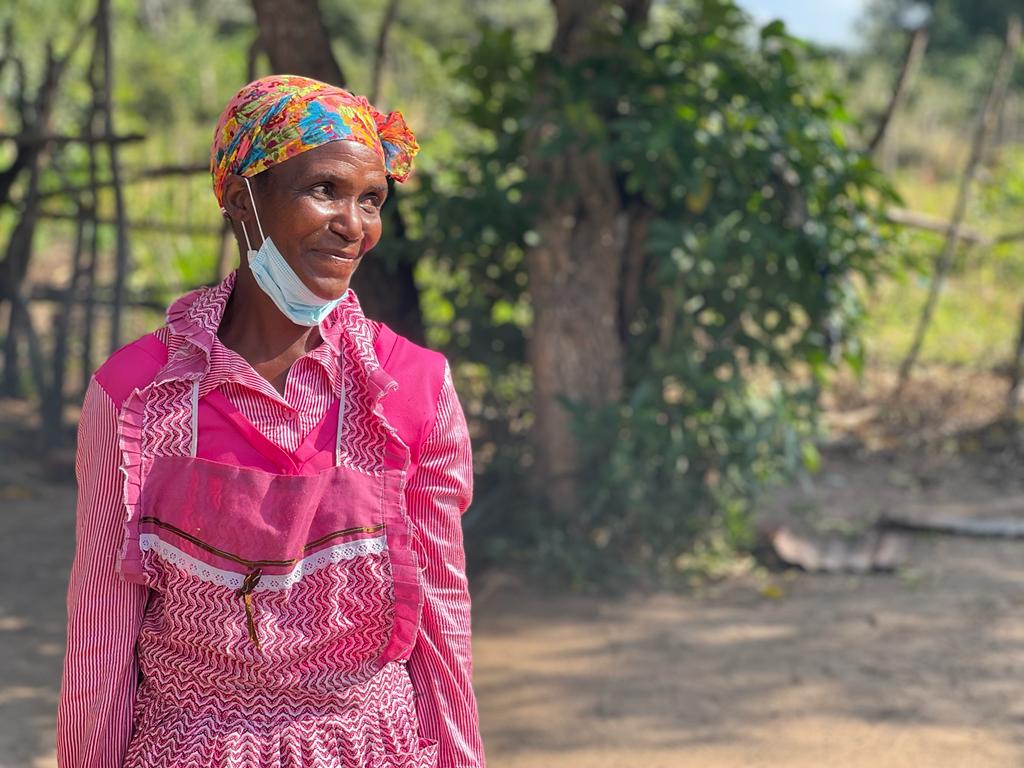
A school cook prepares daily hot meals for children in the Matutuíne district of Mozambique.
Improving food security through education
Counterpart leads the implementation of the five-year McGovern-Dole Food for Education and Child Nutrition program, Our Bright Future!, in collaboration with partners Associação PROGRESSO, Civil Society Learning and Capacity Building Centre (CESC), and Creative Associates International. Our Bright Future! will assist the government of Mozambique to improve health and strengthen the primary education system in 244 schools in Magude, Manhiça, Moamba, and Matutuine districts in the Maputo province.
Less hunger, more children focused in school
Counterpart and its partners will work with Ministries of Health and Education, schools, parents’ associations, community members, and non-government agencies to:
- Improve student attendance rates by providing nutritious daily school meals to students, improving school infrastructure, and increasing parent and community engagement to support schools and student learning
- Improve school and community health and dietary practices by increasing the knowledge of students and their families on improved nutrition, health, and water, sanitation, and hygiene (WASH) practices, and providing access to clean water, sanitation facilities, and deworming medications
- Improve literacy of school-aged children and the quality of education by increasing teacher capacity through professional development, providing quality instruction and learning materials to students, and strengthening the linkages between local and national-level decision makers
- Increase the capacity of the national school feeding program — Projecto de Alimentação Escolar — to locally procure commodities and provide oversight of a diversified food basket in school feeding programs
